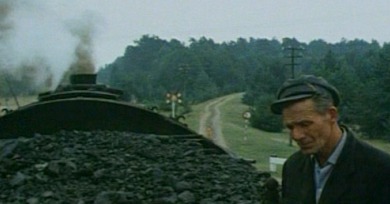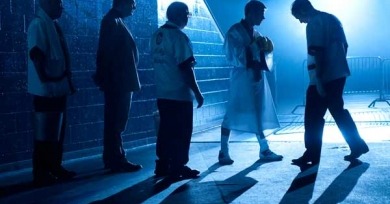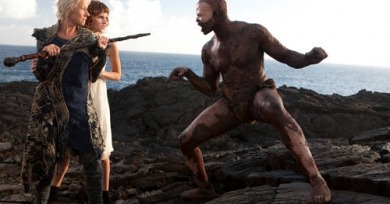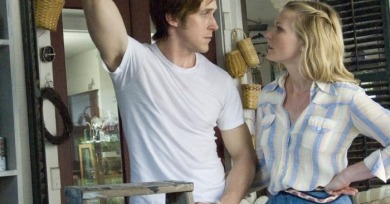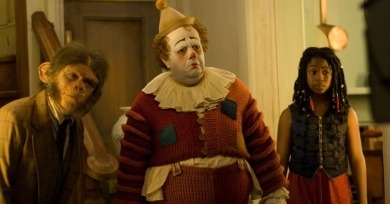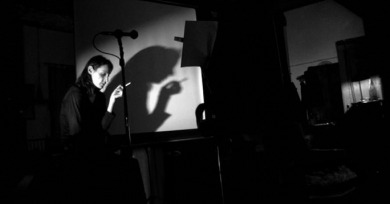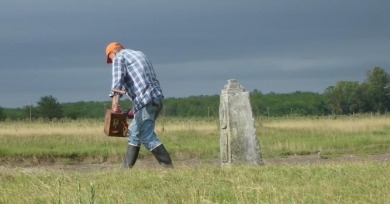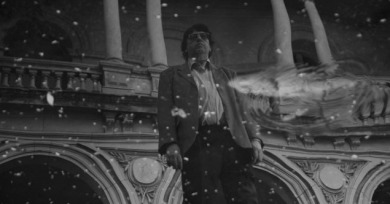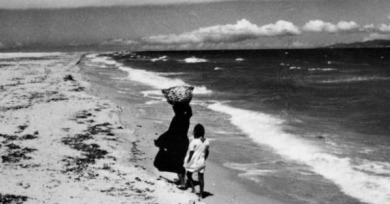Reviews
Lee Chang-dong’s protracted yet endlessly involving tale of grief and regeneration is a classically tailored assemblage of small, clipped moments, prizing the intricacies of human behavior but also acknowledging it as remote and difficult to define.
The worst response to a film as enormous as Shoah may be to box it in with mere words. Though citing the faults and fissures of language is perhaps a critical crutch, here the slipperiness of signification is operative within the very makeup of the work itself.
The least interesting movie of Russell’s interesting career, The Fighter was someone else’s passion project.
Julie Taymor is a filmmaker fascinatingly, infuriatingly at odds with herself. Each of her four features contains an essential, somewhat patronizing, gesture toward accessibility.
Dunst has some of the most dreamily sad eyes in movies today, effervescent when alight with joy and cutting when dulled by despondency; and she is matched in expressivity by Gosling, whose slightly weary baby blues offer flashes of the closely-guarded private worlds alive in his characters’ heads.
So, thanks for accompanying me last night to The Nutcracker in 3D from the director of Tango and Cash... I woke up this morning with visions of Gestapo rats and immolated toys dancing in my head.
From our vantage point in 2009, the film feels a period piece, some kind of elegy for those hazy pre-surge summers of 2005 or 2006 when casualties were at their height and the war promised to loom large over upcoming elections.
Resist the urge to check out of Tiny Furniture after the first twenty minutes. The winner of Best Narrative Feature at this year’s SXSW Film Festival (natch), writer/director Lena Dunham’s second film begins with enough self-satisfied tics to make even the hardiest filmgoer break out in indie-smirk hives.
One could have been forgiven for flippantly wondering, when George W. Bush announced in November 2001 that any country harboring terrorists would be held accountable, which British city might be first on the list for U.S. air strikes. Manchester, perhaps? Bradford? Birmingham?
In the opening minutes of 127 Hours, Danny Boyle’s adaptation of the based-on-a-true-story book by Aron Ralston, also known as the guy who cut his own arm off in order to free himself from a boulder, it seems the apparently ADD-afflicted filmmaker has found the perfect set-up for his hectic aesthetic.
No mere documentary, Portuguese director Pedro Costa’s enthralling Ne change rien is a cinematic offering laid at the feet of its bewitching singer-star, Jeanne Balibar.
This exceedingly strange bundle of nested narratives dared to introduce scores of characters and storylines (some rich tributaries, others dead ends), perspectives and locales (Mozambique-for-India, the Salado River) with an almost ceaseless stream of omniscient voiceovers.
Federico Veiroj’s pint-sized second feature, A Useful Life, runs only slightly over an hour, but the gauntlet it tosses at the feet of the cinephiles who are its most likely audience suggests a young filmmaker eager to grapple with the state of film culture.
Opening images of cloud-strewn skies, waves lapping the shoreline, and parched expanses of land coupled with an incantatory, poetic voiceover (written by Benacerraf and Pierre Seghers) set an epic tone from the start.

